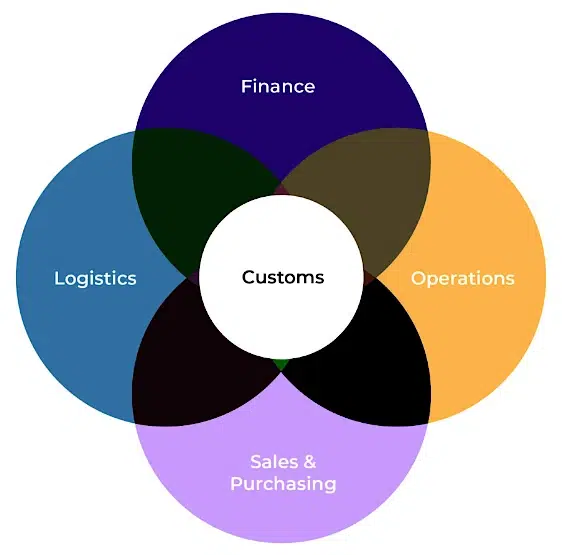The responsibility often sits between several different individuals and departments within an organisation and may also involve brokers.
There’s no easy place to go to find the specific, up-to-date, relevant information on customs compliance regulations that is needed in the moment it’s not surprising that many businesses find that day-to-day working practices slip by unquestioned.
Unconscious assumptions become the backbone of customs procedures, often relating to internal legacy issues (this is how we’ve always done it) or following the example of bigger industry peers (if that’s how they do it, it must be ok).
Customs Consultant Lindsey Roberts commented:
“It’s often the case that a prominent multinational corporation employs a specific customs strategy, and smaller businesses may erroneously assume it is an accepted practice. However, this assumption overlooks the nuanced intricacies of customs regulations and the uniqueness of businesses. These assumptions create vulnerabilities that can expose businesses to legal and financial risks.”
Business should be aware of the following common assumptions or myths to minimise operational risk:

Assumption 1: “Goods clearing customs or audit means declaration accuracy”
It is a misconception that once goods clear customs, the declaration is deemed accurate and correct. In reality, customs clearance is just one step in the broader process, in regards to customs compliance regulations, and the shipment is subject to audit for up to three years.
Even after an audit is complete, there is still no guarantee that everything is in order. In a recent case between Laurence Supply and HMRC, the business completed a clear audit and took that as an indication that their declaration practice was in good order. The assumption later saw them receive fines of over £600,000.
In addition to hefty fines, failure to accurately declare goods can result in, customs demands for underpaid duty, increased HMRC audits delays in shipments, and even seizure of goods.
Assumption 2: “Issuing preferential origin certificates upon customer request is an acceptable common practice”
Another common assumption is that it is acceptable to issue preferential origin certificates simply because a customer requests it. Businesses may unwittingly certify goods as originating from a particular country to qualify for preferential tariff treatment, without thoroughly verifying the eligibility criteria.
However, overlooking the intricate rules of origin can invalidate these certificates, exposing businesses to retrospective duties, audits and penalties. There are now fines for falsely issuing Preferential Origin Certificates.
Assumption 3: “Customs agents bear liability for declaration accuracy”
Businesses often assume that their customs agents shoulder responsibility for the accuracy of customs declarations. While customs brokers play a crucial role in facilitating the movement of goods, the ultimate responsibility for compliance almost always rests with the importer or exporter.
Relying solely on the expertise of customs agents without conducting internal audits and reviews can leave businesses vulnerable to compliance gaps and potential liabilities.

Lindsey Roberts concluded:
“In the complicated world of customs compliance, the allure of following the crowd or relying on past assumptions can be deceptive, leading businesses astray from the path of legal obligations. While shared practices may offer insights, they do not absolve businesses of their responsibility to conduct independent due diligence. By challenging assumptions, investing in comprehensive understanding, and engaging expert guidance, businesses can navigate the intricacies of customs compliance with confidence, safeguarding their operations from regulatory pitfalls and legal liabilities.”
Customs duty is a self-assessed tax; good business practice ensures ongoing reviews of your customs function. Getting the key foundations of valuation, origin, and classification right minimises risk, and provides opportunities for potential savings.
Contact Us
For further information, or to discuss any aspect of your customs duty, call Adam Wood for a confidential, no-obligation conversation on 01905 914031 or you can email Adam at [email protected].
Related Posts
24 March 2025
Importers … Can You See What HMRC Sees? Unlocking Your Customs Data
Many businesses trust that their…
13 March 2025
Customs Compliance Gone Wrong – Key Lessons from a Tribunal
The QHH tribunal case centred around…
24 February 2025
Are Your Brokers Doing a Good Job? The Data May Surprise You!
34% of customs declarations contain…


